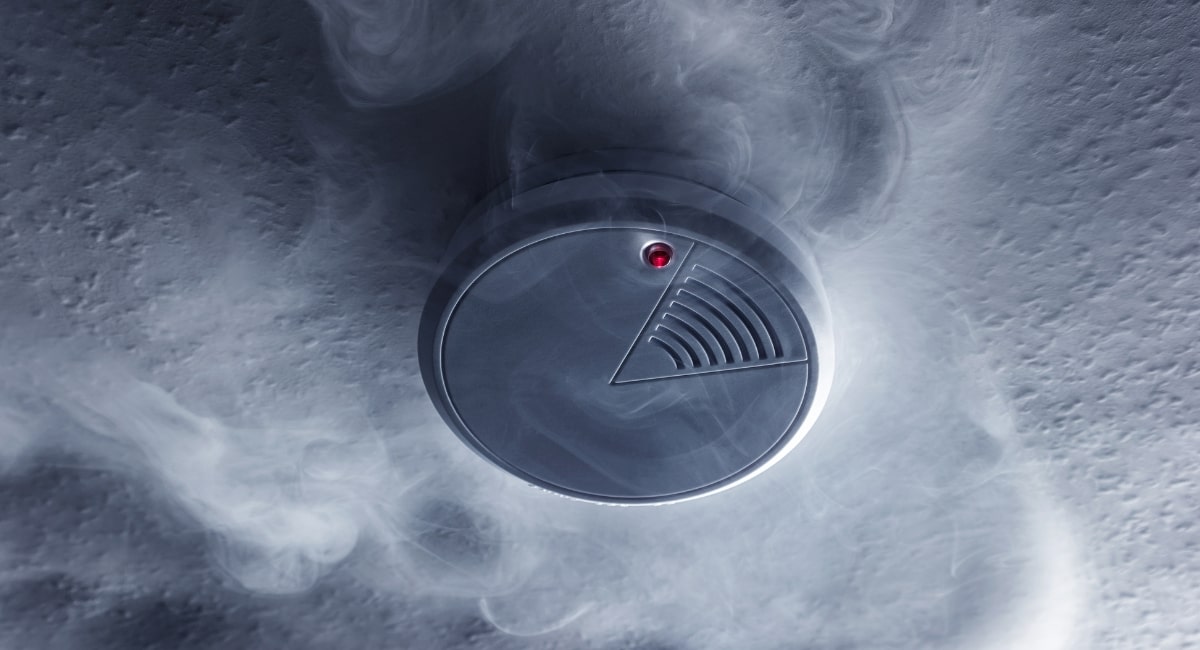Why is My Hard Wired Smoke Detector Chirping? How to Fix
A good smoke detector is crucial in our homes. It lets us know about fire hazards when it senses smoke. But, let’s be real, they can get on our nerves if they keep beeping for no reason.
So, if your hard-wired smoke detector keeps chirping after a few minutes. Do not just stop the chirping but make sure there’s no real issue behind it.
In this blog post, we’ll discuss the reasons behind the smoke detector chirping. Also, we’ll provide some tips on fixing it and ensuring your smoke detector is in optimal working condition. So, let’s discuss this issue:
What Does a Hard-Wired Smoke Detector Indicate?
Continuous Chirps
Single Beeps
Multiple Beeps
5 Effective Steps for Smoke Detector Repair
Monitor Temperature Fluctuations
Consider Newer Smoke Detectors
Is your smoke detector blinking red and keeps chirping after addressing the above steps? Is it older than eight years? If so, it might be time for a replacement. Check the manufacturing date on the detector, as they typically last eight to ten years.
Remember, a smoke detector is a life-saving device. Ensure they’re in good working condition by checking them regularly, even if they’re not chirping.
Replace the Battery
Many hard-wired smoke detectors come with a 9-volt backup battery to kick in when your home loses power. If this battery runs low, your detector beeps with a high-pitched sound. Follow these steps to change the battery in your hard-wired smoke detector:
- Turn off your wired smoke detector power from the circuit box.
- Find the battery cover panel on the detector.
- If there’s a screw holding it in place, use a screwdriver to remove it.
- Take out the outdated battery and replace it.
- Hold the “test” button and listen for a beep. If you hear a sound, your detector is working. If chirping persists after battery replacement, the battery isn’t the issue.
Dust inside your detector
Sometimes, dust enters your smoke detector and accumulates in the sensing chamber, causing it to chirp. Dust can also trigger false alarms, so random beeping might signal dust buildup. If you want to clean your detector, follow these easy steps:
- Turn off your wired smoke detector power from the circuit box.
- Remove the cover of the detector.
- Use a tiny brush or a vacuum cleaner to remove the dust from your detector.
- Optionally, use a mild detergent to get rid of any dust buildup.
- Put the face back on the detector and listen for the chirping sound.
Reset Your Alarm
If your hardwired smoke detector is still chirping after trying the earlier suggestions, it might need a reset. Hardwired smoke detectors, like other electrical devices, are usually connected to electrical breakers to prevent damage or unsafe conditions. However, identifying the right breaker isn’t always easy.
As per local fire protection codes, fire alarm systems share a circuit with lighting or outlets. If breakers are unmarked, you might need to experiment by flipping lighting circuits until you notice the smoke detector lights dimming.
Once you find the breaker, switch it off, wait a few minutes, and then switch it back on to restore power. If the alarm stops beeping, you’ve likely resolved the issue by resetting the device. To confirm, press the test button on the detector’s face for a few seconds. If the alarm sounds a few times and then goes silent, your detector is back in working order. While addressing smoke detector issues, remember to regularly check your fire sprinkler systems for optimal safety.
Conclusion
Addressing your hard-wired smoke detector chirping is crucial for safety and peace of mind. By understanding the potential causes behind the chirping, you can take preventive steps to troubleshoot and resolve the issue. As you know, the importance of smoke detector can’t be overstated, so regular maintenance and periodic testing is necessary. For any queries or fire protection-related work in Los Angeles or Orange County, contact Anchor Fire.
KEEP YOUR PROPERTY SAFE
Related posts
-
Fire Safety Tips for the Workplace
-
Fire Safety Tips for Hospitals
-
How to size fire pumps?
-
Different types of sprinklers?
-
What is fire protection system?
-
Fire Extinguisher Inspection
-
Fire Sprinkler System Components
-
What are the most common types of fire pumps?
-
How much does a fire sprinkler system cost?
-
What is active and passive fire protection?

